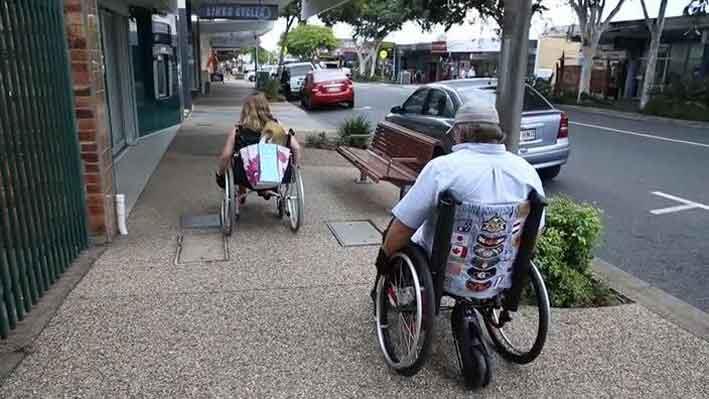Twenty-four year-old Graziella enjoys independence and being herself as much as anyone of that age does, and although being a sufferer of Down syndrome hinders her in some aspects, her abilities and understanding are factors to be stressed and celebrated.
Her older sisters, Michelle and Louisa Bonnici, explain that Graziella loves socialising with them, however, they have always wished for her to make friends outside the familial unit, so coming across the ‘Sharing Lives’ project by Agenzija Sapport was seen as a blessing.
“Graziella comes out with us a lot, but we felt that she needed a social life to call her own, to make friends, meet new people, and not always be tied to her sisters,” Michelle said.
The two women describe their sister as being quite independent, Graziella is currently studying to work in production and enjoys looking up new hairstyles to try out on herself, as Louisa explains, chuckling.
The Sharing Lives government-funded project organises activities for people with disabilities, and provides a group of volunteers to assist in the activity, allowing the individuals to be independent and socialise, however, with the reassurance that someone is there to help when needs be. The individuals participating in the project have different disabilities, including (but not exhaustive to) Autism, ADHD, Intellectual disability, Down Syndrome, and physical disabilities.
There are currently 35 persons with a disability in the Sharing Lives project, and the number is steadily increasing. As the project progresses, a wider variety of social activities are being organised for different personal preferences to suit individuals with various abilities.
“Making pizzas in the south of the island was an enjoyable one,” Louisa recalled, as she explained how Graziella was speaking about it for a while. Other activities within the project were horse-riding, a hike, a trip to the pub, an art class, song-writing, t-shirt making and attending cultural events, as well as the Isle of MTV concert. Furthermore, the teams is looking to embark on new initiatives where the people with disability themselves can get involved in charity work.

The events happen approximately every fortnight, and in between, Louisa explained how Graziella would be constantly asking her when the next activity is coming about, which is followed by the latter waiting near the door for the transport to pick her up when the day finally arrives.
Inclusion in reality is different to that on TV
“She has made new friends, and that was the main aim, to get her out of the protective bubble and experience different things,” said Michelle. She explained that Graziella had experienced hurdles in the past, which came in the way of socialising.
“Inclusion is not always as easy as they make it seem on television,” she said. “Agencies and services to what they can to improve the situation, but there is still that difficulty, ever since she was young.”
“I don’t think there is a taboo … but we have always encountered problems, from school, where she was often labelled as ‘different’ and therefore not playing with her for that reason,” explained Michelle, adding that “sometimes it used to come from the parents. Or they would laugh in her face.”
A spokesperson for Agenzija Sapport explained that being accepted for who they are is, in fact one of the main hurdles that people with a disability come across, which can lead to isolation. She highlighted that besides this, accessibility issues in events also add to the problem.
“One of the major hurdles that people with disability face when attending social activities in the community is being accepted for who they are by their peers and the general public. Lack of tolerance and understanding from others often causes lots of pain to persons with disability which may lead to isolation. Furthermore, there is an issue of accessibility with establishments and cultural events which further increase the problem. These realities prevent people with disability from living a full life,” the spokesperson said.
“From one event to the next, Grazielle has been looking out for people she met previously,” said Louise, “the group have created friendships between themselves.”
Volunteering
Agenzija Sapport is always on the lookout for volunteers, especially with the increasing number of participants within the project. Michelle and Louise explain how they have also applied to help out as volunteers whenever they can.
“From being a volunteer, I realised how the organisers of the project make sure that each volunteer is capable of doing the job and the security features,” said Michelle. “The most important thing is that the volunteers are dedicated, as if you are not, you can do more harm than good,” she concluded.
The volunteer training provided prior by the NGO provides volunteers with basic skills and knowledge on how to engage with vulnerable people, according to the NGOs spokesperson. “The training is interactive and experiential and encourages volunteers to challenge their stereotypes about disability and have a deeper understanding of the realities that people with disability encounter,” she said.
How can you apply to volunteer?
Interested individuals are encouraged to apply by filling in the Volunteer’s Application form available for download from www.sapport.gov.mt and send it together with a police conduct to Aġenzija Sapport, Triq Patri Gwann Azzopardi, Santa Venera. One can also inquire on 22568000 for further information.